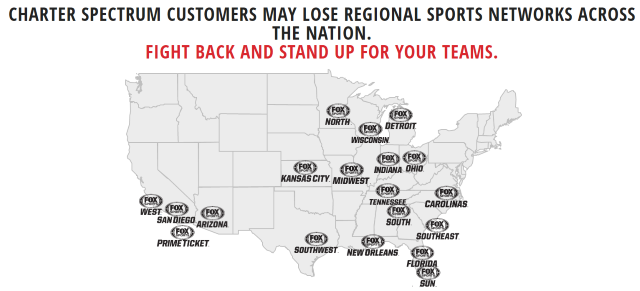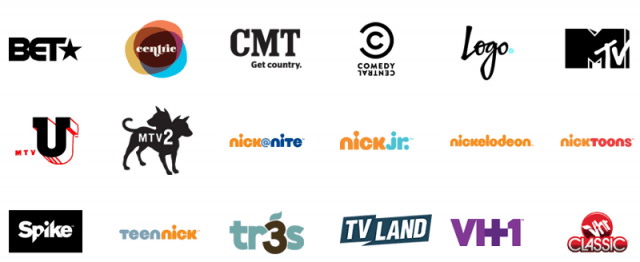Altice customers woke up on New Year’s Day to discover as many as 17 Starz and Encore premium movie channels missing from their lineup, replaced with little-watched alternative networks like The Cowboy Channel and Hallmark Drama.
It is the first retransmission consent dispute of 2018, and it began as 2017 ended. Altice issued a terse statement:
As of midnight December 31, 2017, Altice USA will no longer carry Starz or StarzEncore programming directly. Despite numerous attempts by Altice USA to reach a deal with Starz for continued carriage in video packages and a la carte carriage, Starz refused all offers, including an offer to extend our current arrangement.
Customers will not get a discount on their cable bill because of the loss of the premium movie networks. Instead, Altice quickly signed carriage agreements with several replacement basic cable networks including Hallmark Drama, Sony Movies, MGM HD, HD Net Movies, Flix, and Cowboy Channel. The last network on the list seemed an odd choice for the New York City market, featuring rodeos and rural living-oriented programming. Some customers were also placated with a replacement subscription to The Movie Channel.

Customers don’t consider the six replacements adequate for the loss of more than a dozen premium-priced movie channels, including STARZ, STARZ Edge, STARZ In Black, STARZ Comedy, STARZ Cinema, STARZ Kids & Family, STARZENCORE, STARZENCORE Action, STARZENCORE Classic, STARZENCORE Black, STARZENCORE Family, STARZENCORE Suspense, STARZENCORE Westerns, STARZENCORE Español and Movie Plex channels, and some plan to downgrade or cancel service.
Removing 17 channels and replacing them with 4, one of which is the cowboy channel is the stupidest thing I have ever heard. My bill is more than 200.00 per month, and the value for the money is definitely not worth it. Optimum is just plain greedy.
— Mary Anne Suttles (@Stormcloud2000) January 2, 2018
Altice has played hardball with programmers in the past, especially those that direct-sell their programming to consumers through online streaming. In follow-up remarks, Altice essentially told customers to go and buy Starz directly from Starz itself, and took a shot at the network claiming most of their customers don’t watch their movie channels anyway.
 “We are focused on providing the best content experience for our customers and continually evaluate which channels meet their needs and preferences relative to the cost of the programming imposed by content owners,” Altice officials said in a statement. “Given that Starz is available to all consumers directly through Starz’ own over-the-top streaming service, we don’t believe it makes sense to charge all of our customers for Starz programming, particularly when their viewership is declining and the majority of our customers don’t watch Starz. We believe it is in the best interest of all our customers to replace Starz and StarzEncore programming with alternative entertainment channels that will provide a robust content experience at a great value.”
“We are focused on providing the best content experience for our customers and continually evaluate which channels meet their needs and preferences relative to the cost of the programming imposed by content owners,” Altice officials said in a statement. “Given that Starz is available to all consumers directly through Starz’ own over-the-top streaming service, we don’t believe it makes sense to charge all of our customers for Starz programming, particularly when their viewership is declining and the majority of our customers don’t watch Starz. We believe it is in the best interest of all our customers to replace Starz and StarzEncore programming with alternative entertainment channels that will provide a robust content experience at a great value.”
Altice did expand on what it felt were unfair terms being offered to it while consumers could get the same movies and original series for less money elsewhere:
“Since our last contract renewal, Starz began offering a direct to consumer streaming service for $8.99 per month. Given that Starz is available direct to consumer through their subscription service, we have been actively negotiating to reach a deal that makes sense for all our customers, and made numerous offers of increasing value and partnership structures.
Starz wanted an all or nothing-type deal and their insistence on terms would force us to charge customers more than what the Starz OTT product costs — that would not make sense for our customers. Given the limited viewership of Starz amongst our customer base and that consumers can get Starz directly, we believe this approach is in the best interest of all of our customers who otherwise would have seen an impact on prices due to Starz’ demands.
We have simply been seeking to do what Starz itself is doing: support a Starz a la carte product, whether through our sales channels or through their OTT service.
We have reached more than two dozen agreements over the last few months that reflect the company’s commitment to both negotiate fairly and keep costs down for customers. In addition to offers to maintain packaged distribution, we proposed extending our a la carte deal in Suddenlink to include Optimum and Starz refused – this despite the fact that Starz has a la carte only deals with other distributors. We also offered to help sell the Starz OTT service to our broadband customers and they refused. We also offered to extend our current agreements.”
Analysts say it is very uncommon for a cable company to encourage its customers to directly subscribe to a service traditionally sold by the cable operator itself. Altice sought to drive home their view that selling cable programming direct-to-consumers devalues the product for cable operators, especially if the programmer sells it directly to consumers at a lower retail price than a cable operator can can buy at the wholesale rate.
“Despite all of Altice’s assertions to the contrary, the facts in this dispute are simple. Altice wanted a drastic reduction in price that was totally inconsistent with the market and flew in the face of the record popularity of our programming,” Starz said in a statement that did not refute Altice’s cost claims.
Starz offers a 7-day free trial of its streaming app, which offers on-demand access to most titles found on Starz or Encore networks. After the free trial, the service is available for $8.99 a month or $89.99 a year, which offers a 17% discount off the monthly price. The website offers more information about supported devices and streaming policies.


 Subscribe
Subscribe



 CBS earned $1 billion from cable and satellite TV customers in 2016, collected from providers in return for permission to carry CBS stations on their lineups.
CBS earned $1 billion from cable and satellite TV customers in 2016, collected from providers in return for permission to carry CBS stations on their lineups. Viacom, Inc., the nemesis of any cable operator trying to keep programming costs down, has finally bowed to the reality there is a ceiling on the number of networks Americans are willing to pay for and will narrow its focus on just six of its top cable networks.
Viacom, Inc., the nemesis of any cable operator trying to keep programming costs down, has finally bowed to the reality there is a ceiling on the number of networks Americans are willing to pay for and will narrow its focus on just six of its top cable networks. New Viacom chief executive Bob Bakish now plans to cut tension with pay television operators by narrowing Viacom’s focus to just six core networks: Nickelodeon, Nick Jr., MTV, Comedy Central, BET and Spike. The Wall Street Journal
New Viacom chief executive Bob Bakish now plans to cut tension with pay television operators by narrowing Viacom’s focus to just six core networks: Nickelodeon, Nick Jr., MTV, Comedy Central, BET and Spike. The Wall Street Journal 

